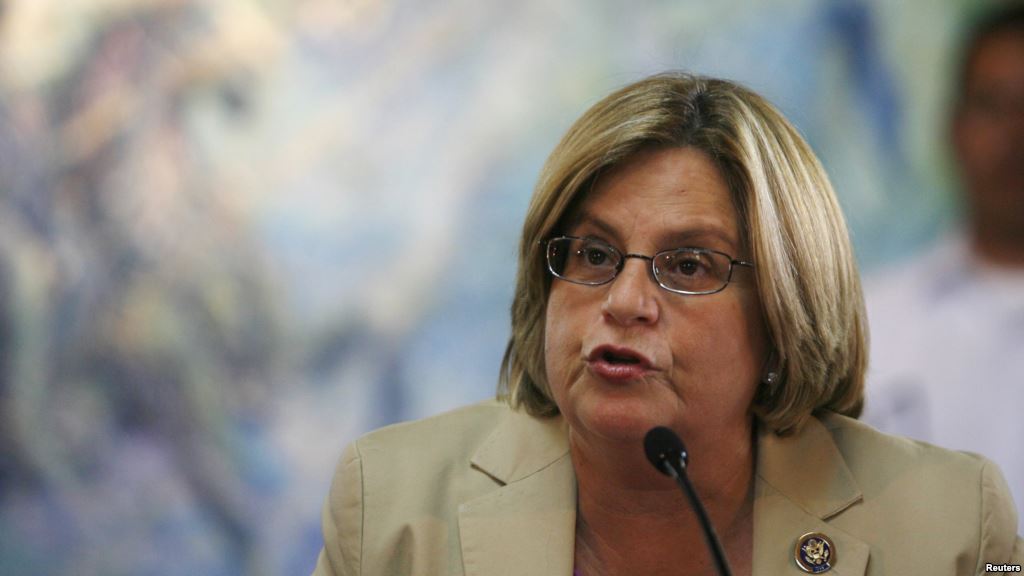
The ‘Miami Wall’ falls
MIAMI – Something funny happened to about three dozen right-wing Republicans led by Ileana Ros-Lehtinen on their way to pass a resolution to reverse President Barack Obama’s decision to remove Cuba from the list of state sponsors of terrorism. They failed.
That’s news. In Progreso, Sarah Stephens, a veteran activist for a change in U.S. policy toward Cuba, recently wrote about the technical/legal reasons Ros-Lehtinen alluded to try to explain away why she decided not to move forward with the resolution. Stephens does a good job in exposing the glaring contradictions in Ileana’s story. In sum, the real story seems to be that they didn’t have the votes and concocted a pretext to save face and avoid the embarrassment of a defeat on the floor.
Stephens’ article adds an interesting piece to the puzzle surrounding the extraordinary and very sudden transformation in the policy of the United States toward Cuba. But there is a larger story that Ros-Lehtinen’s retreat signals and symbolizes: the quick and nearly total collapse of the once invincible hard-line anti-Castro lobby.
Why and how it came tumbling down faster than the Berlin wall is something I haven’t completely figured out yet, although I have some hypotheses I will share later in this column. Here I want to put the collapse of the Lobby and the delisting of Cuba from the terrorist list in the context of the overall and longstanding U.S. policy toward Cuba.
The most amazing thing about U.S. Cuba policy is how it managed to stay in place in the face of the sheer irrationality of so many of its specific components. The United States creates a television station beamed to Cuba (TV Marti) and it turns out the Cuban government can easily block the signal and nobody in Cuba is watching. Yet the U.S. government continues to dish out millions of dollars to keep it going year after year, regardless.
Irrational, you say? Clearly. But each time someone in Congress tried to pull the plug the anti-Castro lobby went bonkers and the Lobby prevailed.
The Radio Marti story differs in the details but not on the major point. In this case the signal often got through but not nearly enough people were listening to justify the huge cost. Plus the station was riddled with multiple problems like lack of objectivity, cronyism, and bureaucratic infighting.
The very notion that Cuba’s nemesis to the north could fund and run a media outlet characterized by objectivity is ludicrous. Place that station in Miami and have it run mostly by Cuban exiles and the little credibility it had disappears. It’s crazy. But that didn’t stop the exile lobby from opposing closing it down, or, incredibly, always prevailing.
Salvador Dali named one of his paintings “the endurance of character.” The surreal story of U.S. policy toward Cuba could be called “the endurance of irrationality.” The exile lobby played a significant role in keeping the insanity going.
Beyond its irrationality, there is another aspect of the United States taking it upon itself to label Cuba a terrorism sponsor. It’s not only false, it’s outrageous.
It’s been decades since Cuba backed armed insurrection, mostly in Latin America. Moreover, they backed guerrilla movements, not terrorists. Some of these movements and leaders tagged as terrorists led genuine national liberation movements and became global icons. I need to mention just one name to make the point: Nelson Mandela.
The United States, in contrast, sponsored governments and militaries that murdered an Archbishop, raped and killed several American nuns, and assassinated a number Jesuit professors. Not to mention the 200,000 Indians massacred by the U.S.-backed Guatemalan military. And that’s the short list.
State sponsorship of terror? Look in the mirror. Physician, heal thyself.
I will close with a few observations, hardly conclusive, about the collapse of the hard line lobby. For a long time most members of the U.S. political class have considered policy toward Cuba crazy or, at a minimum, an anachronism. But changing it would have required tangling with the Cuba lobby, a bruising bunch, some of whose members are extraordinarily nasty people like Frank Calzon and the Diaz-Balarts, among others. Then there is Florida and the politics of presidential elections, plus the unholy alliance of Republican and Democrats in the state that united to serve as a posse of goalkeepers to keep any shots against sanctions from scoring.
When I give lectures on this subject, I call this whole field of power that kept the status quo on Cuba in place the “Miami Wall.” Now a developer in Miami is trying to build a monstrosity of a billboard/building that is said will reach to the sky. That may or may not fly, or rise. But the Miami Wall – that edifice has been demolished.
Despite the Miami Wall, opposition to a policy as irrational, ineffective, and entrenched as this one accumulates over time. Yet, even as it approaches a critical mass, something else is needed to set off the chain reaction that we are now witnessing. That something is political will and skill.
The Cuba negotiations in particular were carried out with extraordinary discretion and savvy, not only by each side but also by world-class third parties, mainly the Pope. That talks carried out by the heads of three vast bureaucracies – Cuba’s, the United States’, and the Vatican’s – could be conducted in secret for so long is an amazing story that needs to be written.
Finally, for all my earlier doubts, I have to say that in the end Barack Obama came through. He has done a lot of what he initially promised. The U.S. is not only talking not only with Cuba, but even with Iran. Imagine that.
Obama, I almost lost the faith. Sorry. And thank you.

